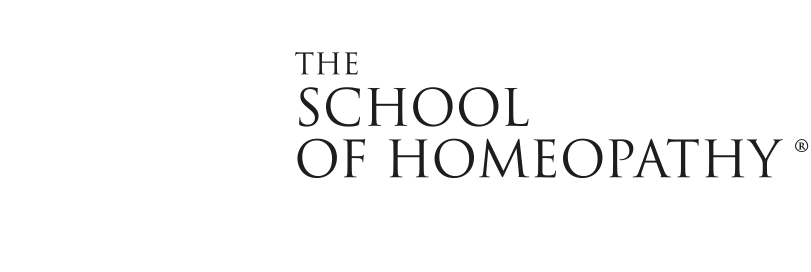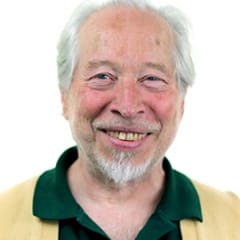Interview with Misha Norland, Founder, School of Homeopathy
19 April 2017 at 14:37
Renowned homeopath Misha Norland is interviewed by Vatsala and Ehud Sperling.
Misha Norland is the founder of The School of Homeopathy, UK, where he now teaches. He was a founding member of The Society of Homeopaths and was head of Homeopathic Research at the first UK homeopathic college. Misha has taught many of the world’s leading homeopaths. He has been an international clinical facilitator, lecturer and author, well known for his contributions to journals, conferences and new materia medica.
Vatsala Sperling
As a student of the School of Homeopathy, Devon, UK1 I had always looked forward to my interactions with Misha Norland, the founder of this school and enjoyed learning about his unique and deep perception of homeopathy. Recently, I happened to be on a vacation with my family in the rain forests of Costa Rica and I learned that Misha Norland would be there too on a visit. An invitation from me soon followed that was readily accepted and one fine day, my family and I welcomed my most respected teacher, Misha Norland, as our honored guest. For the first few moments, it was hard for me to believe that Misha was with us, in flesh and blood, but soon the reality of this situation sunk in and I felt a profound sense of joy that comes from knowing that for a few precious moments, I am in the company of someone wise.
The rain forests of Costa Rica boast an average of 300 inches of annual rainfall. During Misha’s visit, we were treated to a couple of low pressure tropical storms. Rains came down with a blinding fury that required us to respect the downpour and stay indoors in my office till the skies cleared. This turned out to be a blessing in disguise and I felt it would be OK to ask Misha some questions that were on my mind. My husband, Ehud Sperling, a life-long supporter, user of homeopathy and publisher2 of many books on the subject including Rajan Sankaran’s ‘Homeopathy For Today’s World’ showed much interest in hearing Misha speak and quickly, the three of us found ourselves engaged in a deep conversation that flowed with ease, just like the countless rivulets created outside by the relentless rainstorm.
VS: Misha, you have been associated with homeopathy ever since your late 20s. With over forty years of study and practice of homeopathy, what is your observation about its current status?
MN: Let me cite what is happening outside as an analogy. It is raining heavily and roads are collapsing. The same is true for the current state of homeopathy. It is collapsing. Homeopathy itself is not, for it is as true today as it ever was, but the world’s view of it has become obscured, as though a great storm was currently passing overhead. I think this is largely so because of a deepening materialistic vision, and because the mechanism to explain the potentized remedy has not yet been identified. The world of popular science holds on to the Newtonian view which fails to explain homeopathy. It is interesting that Newton in his later years spent much time investigating alchemy and occult science, yet try as he may, was not able to advance beyond calculus (as if that was not enough!). Avant-garde scientists, such as quantum physicists seem to have no problem with the concepts of homeopathy or the mechanism by which a pill may influence the patient but sadly, this is not the view held by most people.
ES : That is a dark view. What about the experiments on water memory?
MN: Maybe water memory explains some of it. But we know less about water than we know about the surface of the moon. The question, how does the remedy influence the vital force of the patient and how does it direct the vital force – well, memory of water, it seems to me, is insufficient to explain that. Let me amplify with an example. In our proving groups, those who do not take the remedy, but have signed the contract to participate in the proving, even though they may not be present with the other provers, may yet show the influence of the remedy being proved. No water was present during this event.
ES: Morphogenic field resonance theory of Rupert Sheldrake – this can explain the phenomenon you describe.
MN: Yes, I too think this explanation comes very close, however while describing the phenomenon, it does not offer a mechanism. You know, we love to have a theory of ‘how’ that should provide us with visibility, as does the picture of an atom with central nucleus and orbiting electrons in ordered shells.
ES: Science cannot disprove Sheldrake, though his findings, originally from India, do make scientists uncomfortable.
MN: Yes, they certainly do, and he is defiled as pseudo-scientist! I am reminded of Professor Jack Benveniste who found himself at the center of a major controversy in 1988 when he published a paper in the scientific journal Nature describing the action of very high (indeed homeopathically prepared) dilutions of antibody on the de-granulation of human basophils. These findings seemed to support the concept of potentization in homeopathy. He was debunked in what seemed more like a witch-hunt than the efforts of serious science to discover truth.
During the editing of this interview I received notification of a related and current research paper. Those of you with a scientific background may be interested to take a look at Steve Olsen’s paper http://dx.doi.org/10.1016/j.homp.2017.01.003
VS: In the western countries, for most people, homeopathy is a second career. They have done a lot of different things and raised their kids before they step into homeopathy. In this stage of life, many of them are wondering about the spiritual significance of health. What do you have to say to them as a homeopath? In other words, does homeopathy have a spiritual angle that people can explore?
MN: Hahnemann was strict about keeping theorizing and spirituality out of homeopathy. However, I do feel spirit and matter belong together, and should never be separated. Einstein’s famous and beautifully elegant formula has it. After all, the concept of the vital force is absolutely central to the understanding of homeopathy, and what is that, if not a phenomenon of spirit working within matter?
ES: I do see a spiritual component in the patient/practitioner engagement. There is a communication and interaction happening between two individuals about one’s suffering and pain. Homeopathy is trying to relieve it by reaching the vital force with remedies, because, in homeopathic understanding, the vital force is blocked or has deviated from its true course. We can understand the homeopath as an initiator, asking the patient to move past the blockage.
MN: Yes, just so! Also, homeopathy, when it lessens the disease, allows the person the better to reach their individual higher purpose of existence. This is an aspect of spiritual aspiration working within the physical being. Or, put another way, it is the soul’s journey revealing itself. As you say, in homeopathy, an essential component is the relationship between the homeopath and the patient even if that relationship lasts just an hour. It begins, as far as I am concerned, with an initial view of the person in their perfection. Or put another way, we get see the light manifest within us. Some people describe this as love. This exchange of light makes the whole process worthwhile and, by the way, is the reason why we do not burn out. Being touched by light enlightens you, it does not tire you. This exchange of light is transformative because it transcends transitory form. And of course, light being in the session, the blockage begins to reveal itself.
READ MORE:
http://hpathy.com/homeopathy-interviews/interview-april-2017-misha-norland/
Posted in Homeopathy | Inspiration


